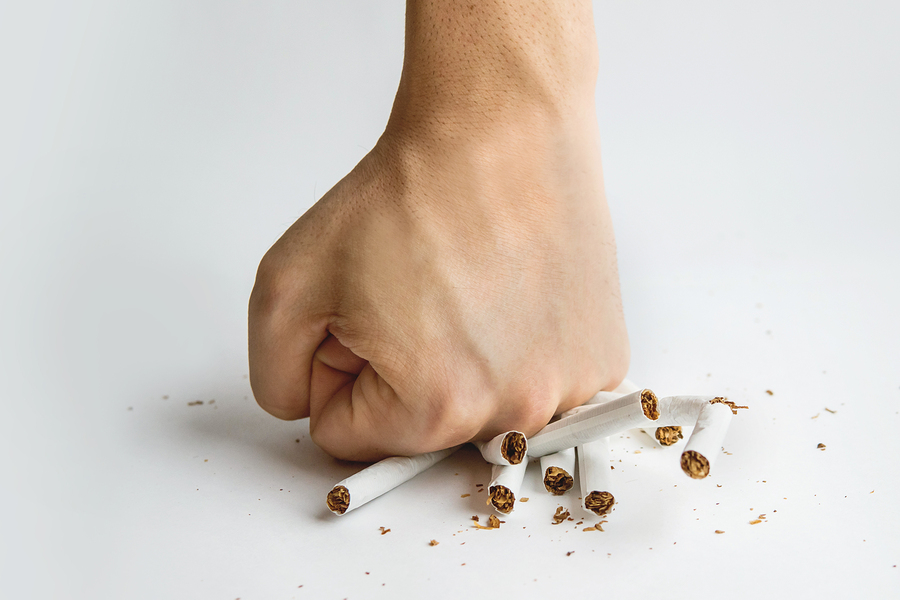Although people have known about the many benefits of cannabis for thousands of years, it has only been recently that the global scientific community has begun to embrace the miracle plant. In the last decade, the “body of research exploring new possible medical uses for cannabis has exploded,”1 including a new study, recently published in the journal Addiction, which found that CBD may help nicotine smokers kick their habit by altering the brain’s “attentional bias.”
RELATED STORY:
(I am a huge believer in and supporter of CBD oil. So much so I created my own organic (made in my hometown of Chicago) line of CBD products. Check them out here!)
“Cannabidiol is the second most common active ingredient in marijuana. It’s a ‘cannabinoid.’ Cannabinoids interact with an important electrochemical signaling system in your nerves called ‘the endocannabinoid system.’ While your body produces natural cannabinoids (called ‘endocannabinoids’) which activate this system, the system of nerve cell receptors and chemicals can also be triggered by the ‘phyto-cannabinoids’ in marijuana, such as CBD.”2
In 2013, a study published in the journal Addictive Behaviors found that smokers who were given a CBD inhaler reduced their cigarette consumption by around 40% compared to those given a placebo. At that time the study was limited and researchers weren’t able to determine exactly how the CBD was able to decrease smokers’ desire to “light up.” However, those results convinced Chandni Hindocha, a doctoral student at the Clinical Psychopharmacology Unit of University College London, to dig a little deeper.
RELATED STORY:
She said,
“Cannabis, and the brain system which it acts upon, the endocannabinoid system, is highly associated with tobacco use, but I wanted to investigate if a component of cannabis, cannabidiol, a non-intoxicating cannabinoid could be used in a positive way, to treat withdrawal.
The second reason was that there was another study in 2013 that showed that a week of CBD inhaler vs placebo reduced cigarette smoking in the following week by 40%.
This was such a large effect, but there was no mechanism investigated. I thought that the mechanism might be through a modulation of the salience (or attentional grabbing) properties of drug cues; as we have seen this also before. In other words, cannabis users with high CBD in their cannabis showed a lower bias to cannabis cues.”3
https://www.youtube.com/watch?v=R9f3Pmwzq88
For the new study:4
- 30 nicotine-dependent smokers were asked to abstain from smoking cigarettes overnight
- random groups were created with some receiving an 800-milligram dose of CBD and some receiving a placebo
- each of the groups were then shown a mix of cigarette-themed and neutral photos while researchers measured their attentional bias
What researchers found was that the smokers who took the placebo paid more attention to the smoking-related images than those who had received a single 800-mg oral dose of CBD. However, cannabidiol did not influence tobacco cravings or withdrawals.
RELATED STORY:
Hindocha said it will take additional research to “fully explore cannabis’ effectiveness as an aid to smoking cessation”5 as many questions still need to be addressed; like what dose of CBD is needed to curb craving and withdrawal and is there another mechanism by which CBD acts? But for now, the study has shown great promise and researchers are excited.
If you are a smoker, would you consider using CBD to help you stop? And if yes, would you be willing to use it orally or inhaled? Leave your comments below.












